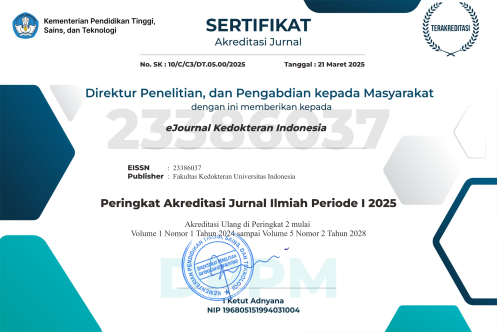The Impact of Ramadan Fasting on Health Parameters among Elementary School Teachers in Medan
DOI:
https://doi.org/10.23886/ejki.13.1001.27Keywords:
Elementary School Teachers, GCU Examination, Health Parameters, Ramadhan FastingAbstract
Ramadan fasting, a globally significant religious practice, involves abstaining from food and drink from dawn to sunset for 29 to 30 days. While previous studies have linked fasting to various health outcomes, the results remain inconsistent. This study examines the effects of Ramadan fasting on several health indicators among elementary school teachers in Medan, focusing on body weight, glucose levels, uric acid levels, cholesterol levels, and blood pressure. Using a prospective cohort design, the study involved teachers from diverse backgrounds at Perguruan Islam Cendekia in Medan, North Sumatra. Baseline health measurements were recorded before Ramadan, with follow-up assessments conducted during and after fasting. Dietary patterns, physical activity, and other relevant factors were evaluated through validated questionnaires and interviews. Statistical analyses, including paired t-tests and Wilcoxon tests, were performed using IBM SPSS Statistics 20. Among the 20 participants, significant changes in health parameters were observed after Ramadan fasting. These included reductions in blood glucose (p = 0.034) and cholesterol levels (p = 0.014), along with an increase in uric acid levels (p = 0.009). However, no significant changes were found in BMI (p = 0.344) or mean arterial pressure (p = 0.345). These findings highlight both the benefits and potential challenges of fasting on physiological health. Ramadan fasting has a multifaceted impact on the health of elementary school teachers in Medan across different health indicators. Tailored interventions are recommended to support well-being during fasting periods.
Downloads
Downloads
Published
How to Cite
Issue
Section
License
Copyright (c) 2025 David Christianta, Defin Allevia Yumnanisha, Muhammad Faruqi, Supri Irianti Handayani, Yusra, Siti Nurbaya

This work is licensed under a Creative Commons Attribution-NonCommercial 4.0 International License.
Accepted 2025-04-11
Published 2025-05-04



